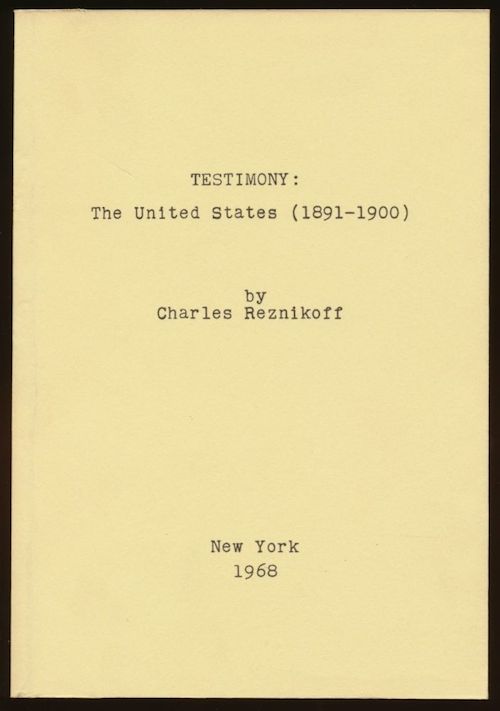Black Sparrow Publishes a Complete Edition of Charles Reznikoff's Testimony

Charles Simic alerts New York Review of Books readers to a complete edition of Charles Reznikoff's classic, industrial-age epic (or "anti-epic," as Simic writes) Testimony, newly published by Black Sparrow Press. Simic writes that he has always been a fan of Reznikoff's sparse, "just the facts" imagism: "...despite the starkness and skimpiness of these narratives drawn from legal records, the underlying horror of the events on which they were based and the tragedies they caused comes through." More:
This summer I read Charles Reznikoff’s long poem Testimony: The United States (1885-1915): Recitative for the first time. I know of nothing like it in literature. Based on thousands of pages of court records spanning three decades around the turn of the twentieth century, Testimony is a compilation of case summaries, a sequence of self-contained pieces. These “recitatives,” as he called them, vary in length between five and over two hundred lines, and are divided into sections according to geographical region and subject matter (Social Life, Domestic Scenes, Machine Age, Negroes, Children, Railroads, Chinese, Thefts and Thieves, etc.). They tell the stories of some five hundred court cases from all over this country and deal with a broad segment of the American population, urban and rural.
A prolific though little-known American poet, Reznikoff (1894-1976) was trained as a lawyer and knew how to inspect documents. He began working on Testimony in the 1930s, while working as a writer for a legal encyclopedia, and picked up the project twenty years later, but didn’t live to see the poem published in its entirety. He pares the transcripts down to the important twists and turns of the case, keeps the dispassionate, depersonalized, and uncluttered language of the law, but breaks up the original prose into lines of free verse to locate the rhythms of natural speech here and there and to draw emphasis on some detail:
The child, about six, thin and feeble
and sick of a disorder of its bowels,
was whipped by its father
for befouling its bed:
twenty or more “licks” with a switch
as thick as its father’s finger,
and large “whelks” left on its body.
And then, on a cold and rainy December day,
sent to its grandfather’s
in another county—
where it died in a few days.He makes no comment, passes no judgment, and wants the facts to stand alone. [...]
Learn more at NYRB.


